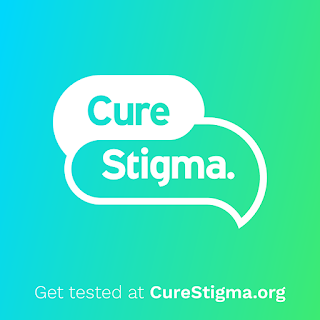Wednesday was World Mental Health Day; this is Mental Illness Awareness Week 2018. Please join the National Alliance on Mental Illness (NAMI), the National Institutes of Health (NIH), and everyone working in the field of addiction medicine and dual diagnosis treatment in putting an end to the virus keeping people from seeking help. The target virus? Stigma!
NAMI’s Cure Stigma campaign or #CureStigma aims to identify individuals who are infected by stigma and educate them as to the facts of mental illness with the hope that such people will exercise more compassion, empathy, and understanding. Mental health disorders are far too prevalent to be treated as anything but the severe health conditions that they are; such issues are not moral failings or the fault of anyone. However, unlike other serious medical problems, much of society looks at mental illness through a distorted lens.
Most Americans are unaware that 1 in 5 Americans lives with mental illness and that nearly 60 percent of those individuals have never sought treatment. Far too many people consider alcohol and substance use disorders as being the result of bad decisions rather than mental health disorders; it also isn’t a coincidence that among the 20.2 million adults in the U.S. who experience a substance use disorder, more than half have a co-occurring mental illness. What’s more, both figures are probably low estimates; the exact prevalence is believed to be much higher because of under-reporting. Stigma keeps people in the dark, they fear that opening up about their illnesses will lead to ridicule and social ostracization.
Encouraging Treatment
At Celebrate Hope, many of our articles deal with stigma and the value of combating stigma. We follow studies in the field of mental health with great interest and make a concentrated effort to disseminate the facts to our readers. When people are informed, they are more likely to disregard preconceived notions and do what they can to effect change in their community. Since mental illness affects every town and city across the country, we can all benefit from encouraging men and women into treatment. A mission that many agree revolves around ending stigma.
When people in society have open and honest discussions about mental illness, everyone benefits. When more individuals voice support for those in the grips of illness, more of the afflicted seek help. Anxiety disorder, depression, PTSD, and bipolar disorder – for instance – are psychological conditions accepted by science and included in the Diagnostic and Statistical Manual of Mental Disorders (DSM-5); the same can be said for alcohol and substance use disorder and dependence.
Mental illness is real, and people are suffering, and they will continue to do so as long others play host to stigma. Adults in the U.S. living with serious mental illness die on average 25 years earlier than others despite the existence of effective treatments, according to the National Association of State Mental Health Program Directors Council.
Please take a moment to watch a video about stigma:
If you are having trouble watching, please click here.
You are also invited to take the Cure Stigma quiz. Please click here.
Dual Diagnosis Treatment
Dual diagnoses, or co-occurring disorders, are common in patients dealing with addiction. When people have a dual diagnosis, it is paramount that both the use disorder and other forms of mental illness are treated at the same time. Please contact us to learn more about how we can help you or a loved begin the courageous journey of addiction recovery.

